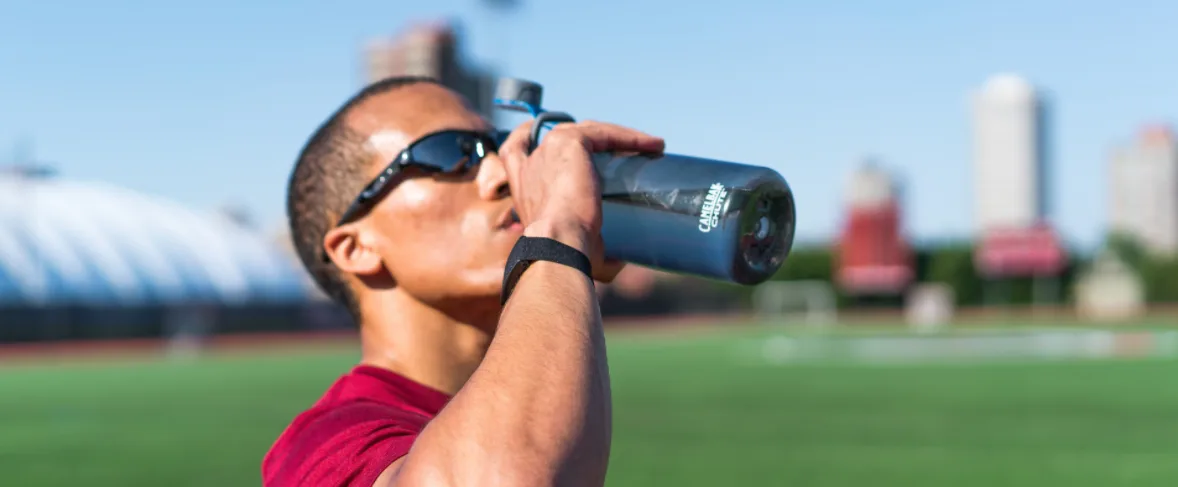Topics
- Article
#WHOOPEd Weekly Digest, Vol. 16

Does your wearable make you more self-aware? Plus the declining importance of the save in baseball and a potential revolution in athletic rehydration.
Monday, August 21
Knee Arthritis Has Doubled… And It’s Not Because of Running
https://www.runnersworld.com/sweat-science/knee-arthritis-has-doubled-and-its-not-because-of-running
- Studies have shown that running doesn’t make you any more likely to develop arthritis in your knees.
- Harvard researchers examined skeletons throughout human history and found signs of arthritis to be more common in modern humans (1976-2015).
- Obesity and age were ruled out as potential causes, leading to these hypotheses as to why we are more susceptible to arthritis than before:
- Walking on hard paved surfaces.
- High heels for women, who are 50% more likely than men to develop knee arthritis.
- Physical inactivity, which can reduce joint cartilage due to lack of use.
Conclusion: Run more, not less.
Tuesday, August 22
To Make the Next Michael Jordan, Scientists Might Use His Microbes
https://www.inverse.com/article/35710-michael-jordan-microbes-microbiome-research-harvard-university
Jonathan Scheiman of Harvard’s Wyss Institute: “Could we extract Michael Jordan’s biology to give to other people, to help make the next Michael Jordan, or just improve health?”
- Scheiman and others studied bacteria from the digestive tracts of elite athletes.
- They looked at fecal matter from marathoners before and after a race, and were able to isolate a bacteria that breaks down lactic acid, which is produced during exercise and causes fatigue and muscle soreness.
- A probiotic could potentially be developed to increase our ability to break down lactic acid.
- This would build endurance and allow us to be better athletes.
Wednesday, August 23
How wearable tech is giving people a sixth sense
https://theoutline.com/post/2091/prosthetics-for-feeling-health-tracker
- Data from our wearable devices becomes a “prosthetic of feeling,” helping us better understand our bodies.
- After using one for a while, is it possible to feel and understand these things on our own and ditch the wearable?
- Women have reported knowing when they are ovulating after having tracking their cycles for some time.
- 2009 research indicated that people who monitored their heart rates could eventually learn to lower them intentionally.
- The author tried the same technique but was unsuccessful.
Thursday, August 24
Building a Better Sports Drink
http://ocr.yale.edu/news/building-better-sports-drink
- A Yale professor was looking to find a way to better rehydrate patients with cholera.
- He and other researchers found that short chain fatty acids increase the absorption of water and sodium in the large intestine.
- They discovered that resistant starch passes through the small intestine when digested and aids the production of short chain fatty acids in the large intestine.
- Cholera patients showed improved hydration when ingesting resistant starch.
- An Australian rules football team also showed improved hydration when drinking resistant starch based fluids before and during training.
- A sports drink containing resistant starch is scheduled to hit the market in early 2018.
Friday, August 25
Baseball Is Finally Realizing That The Save Is Dumb
https://fivethirtyeight.com/features/baseball-is-finally-realizing-that-the-save-is-dumb/
- FiveThirtyEight’s Nate Silver has been tracking a stat this season called the “goose egg,” which applies to any scoreless inning a reliever pitches late in a close game, not just the traditional 9th-inning save.
- Tracking “goose eggs” as opposed to saves is likely a more accurate way to determine a relief pitcher’s overall level of effectiveness.
- Moves made at this year’s trade deadline suggest teams across MLB have figured out that save numbers aren’t the best measure of how good a relief pitcher is.
- Several pitchers with high save totals were dealt for relatively small returns, and many of them are not be used in save situations with their new teams.